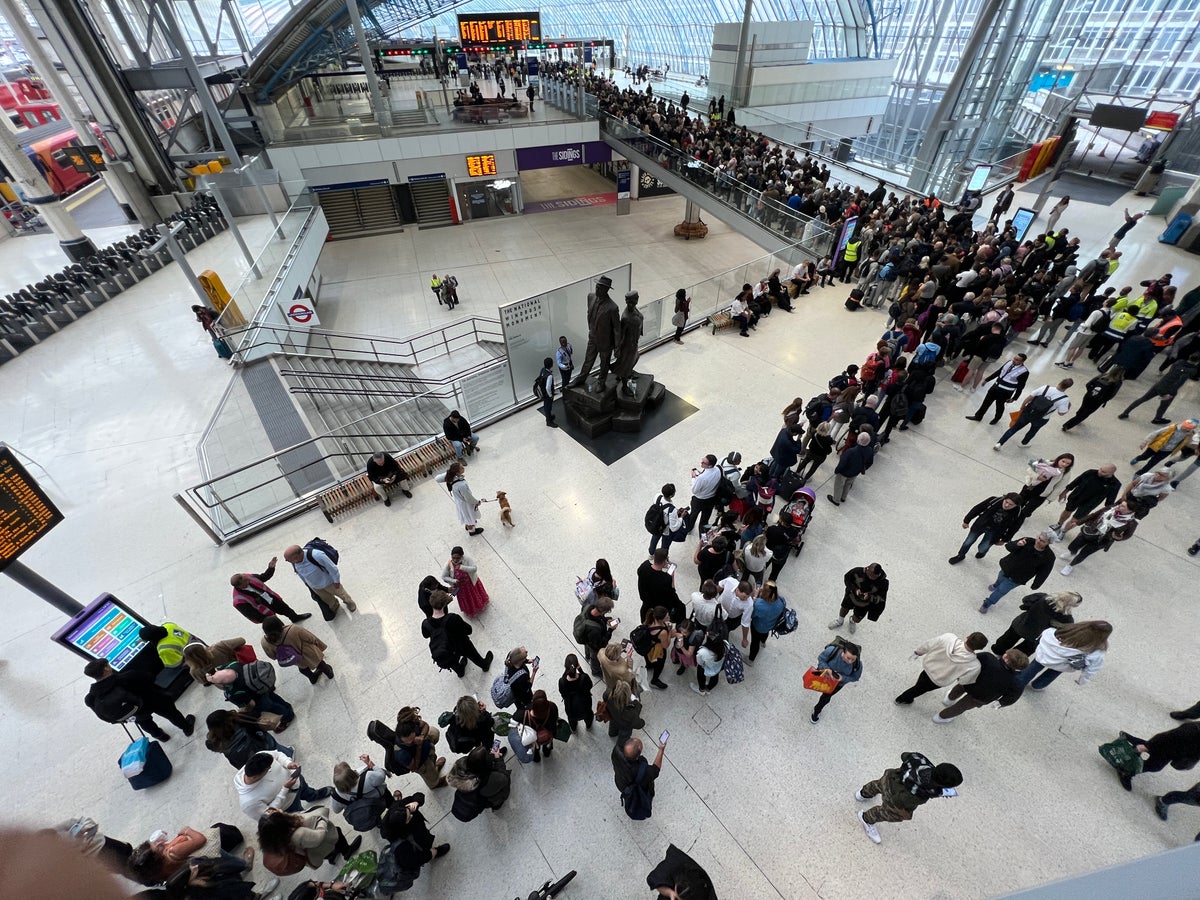
As more rail strikes get under way in Great Britain, the government has announced that from next year “minimum service levels” will be imposed to avoid a compete shutdown of transport links.
Ministers will introduced a bill in Parliament as early as this week to ensure a certain number of trains, Tubes or buses continue to run even during industrial action. But will it work – and, if so, how?
Where are we with rail strikes?
We have just had the first weekend in October without a national rail strike, but various regional disputes are happening. East Midlands Railway passengers have seen widespread route cuts due to two days of strikes by members of the Unite union.
Next weekend it’s the turn of train managers at Avanti West Coast, with a repeat on Sunday 6 November – both of them in a dispute involving RMT unions over the imposition of rosters.
On 29 October, ScotRail staff who are members of the RMT will walk out for 24 hours.
What is the government planning?
The Department for Transport intends to introduce Minimum Service Levels legislation in Parliament shortly.
It will ensure transport services – including rail, tubes and buses – cannot be completely shut down when unions impose strikes.
A government source says: “It is wrong that strikes are preventing hard-working people and families up and down the country from getting to work, doctors’ appointments and school.”
The rule is likely to be that 20 or 40 per cent of trains must run.
Haven’t we been promised this before?
Yes. The 2019 Conservative manifesto promised: “We will require that a minimum service operates during transport strikes.
“Rail workers deserve a fair deal, but it is not fair to let the trade unions undermine the livelihoods of others.”
It appears that almost three years since that election, and after months of national rail strikes, the idea is now back on the table.
How will it work?
The model being used is expected to be similar that used in Spain – where employment and industrial relations laws are very different. For example, as Epsu, the European Public Service Union, explains: “The Ministry of Employment may, in appropriate circumstances, order the strikers to resume work for up to two months.
“Exceptionally, in the event of possible harm to the national economy, the government may end a strike by imposing compulsory arbitration.”
In terms of minimum service levels, Epsu says: “When a strike is held in essential public services, a minimum level of service must be ensured.
“On 23 September 2010, for the first time a collective agreement was concluded between the government and the two main trade unions to organise minimum service provision during general strike action that was due to take place six days later.”
The implication is that there is negotiation and agreement between the union and government. Unions then instruct as many members as needed to meet the minimum service requirement.
Will it work here?
A government source says: “We are introducing this legislation to keep Britain moving, ensure people can get to work, earn their own living and grow the economy.”
But it is not clear that transport unions will be minded to organise their members to provide the specified proportion of trains. Because the concept is alien to UK industrial relations law, it could be that union members simply refuse to comply.
Mick Whelan, general secretary of the train drivers’ union, Aslef, said: “We know that this Tory government – in disarray as it is after crashing the economy – is determined to drive down wages and do everything it can to prevent ordinary, decent, hard-working men and women protecting their pensions, their terms and conditions at work and their pay.
“That’s why Liz Truss, although clearly a busted flush, is determined to try to make industrial action ineffective.
“If the government does drive this measure through – and it’s not clear that in the current chaos it will be able to do that – it may find that a lot of drivers call in sick on strike days when the government wants to run a minimum service.”
The TUC general secretary, Frances O’Grady, said: “These proposals will undermine the right to strike and this is an attempt to stop transport workers taking action for better pay and conditions.
“The transport secretary should stop blocking negotiations so rail employers and unions can reach an agreement in the current dispute.
“But instead Truss and her ministers want to make it harder for workers to win better pay and conditions. It’s a cynical distraction from their own failings.”
Surely the passenger be a winner, though?
That is not entirely clear. At present even on national strike days 20 per cent of trains are running – rising to almost 40 per cent on the East Coast main line. With more experience of strikes, the proportion of trains is likely to rise.
There are serious practical problems, such as: who decides which trains are going to run on which lines? On a complex network such as Thameslink, are services cut by a uniform 60 or 80 per cent on all lines, or is there a focus on the most in-demand routes (as is the case on strike dates at the moment)?
In addition, Mick Whelan of Aslef says: “The train companies don’t want to run minimum service levels because they know it’s a stupid idea.
“What happens when 100 per cent of passengers try to get on minimum service level trains? It will look like Japan where they cram people in like cattle and the rolling stock will, next day, be in the wrong place which will mess up the normal timetable.”







